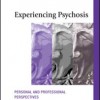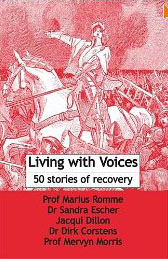A role model in the Hearing Voices Movement
For us Jacqui is unique and it is a great pleasure having known her for many reasons personally as well professionally. Jacqui survived terrible abuse and became strong by using her experience to learn from it. She is one of the few people who is able to really understand that the voices are related to her life history and even more important allow herself to feel it. This combination of understanding on a rational and emotional level became her power. This also enables her to be the caring mother of 2 teenage daughters.
As a professional from experience Jacqui is a role model in the Hearing Voices Movement. She has developed a qualitatively very good course in setting up and guiding Hearing Voices Groups. She has helped many individuals to better cope with their voices and their problems in their lives. She is a very good speaker and has a lot to tell about the voice hearing experience and their backgrounds. She has written many very good articles and book chapters. She especially clearly explains the interaction between different consequences of traumatic experiences like hearing voices, dissociation, self harm and eating disorders. She has a lot to give and a lot to teach professionals and also voice hearers. Besides all this she is Chairing the English Hearing Voices Movement and a member of the Board of Intervoice.
Marius Romme & Sandra Escher





 A new analysis of the hearing voices experience outside the illness model resulted in accepting and making sense of voices. This study of 50 stories forms the evidence for this successful new approach to working with voice hearers.
A new analysis of the hearing voices experience outside the illness model resulted in accepting and making sense of voices. This study of 50 stories forms the evidence for this successful new approach to working with voice hearers.